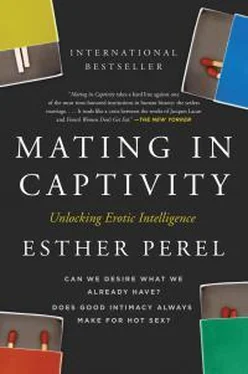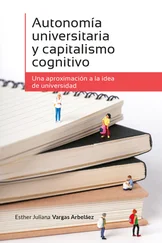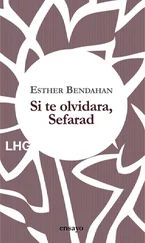We bring to our love relationships this free-floating anxiety. Love, beyond providing emotional sustenance, compassion, and companionship, is now expected to act as a panacea for existential aloneness as well. We look to our partner as a bulwark against the vicissitudes of modern life. It is not that our human insecurity is greater today than in earlier times. In fact, quite the contrary may be true. What is different is that modern life has deprived us of our traditional resources, and has created a situation in which we turn to one person for the protection and emotional connections that a multitude of social networks used to provide. Adult intimacy has become overburdened with expectations.
Of course, when Adele describes the state of her marriage she isn’t thinking about contemporary angst. But I believe that the perils of love are heightened by the particular modern pangs we bring to it. We live miles away from our families, no longer know our childhood friends, and are regularly uprooted and transplanted. All this discontinuity has a cumulative effect. We bring to our romantic relationships an almost unbearable existential vulnerability—as if love itself weren’t dangerous enough.
A Modern Love Story: The Short Version
You meet someone through a potent alchemy of attraction. It is a sweet reaction and it’s always a surprise. You’re filled with a sense of possibility, of hope, of being lifted out of the mundane and into a world of emotion and enthrallment. Love grabs you, and you feel powerful. You cherish the rush, and you want to hold on to the feeling. You’re also scared. The more you become attached, the more you have to lose. So you set out to make love more secure. You seek to fix it, to make it dependable. You make your first commitments, and happily give up a little bit of freedom in exchange for a little bit of stability. You create comfort through devices—habit, ritual, pet names—that bring reassurance. But the excitement was bound to a certain measure of insecurity. Your high resulted from the uncertainty, and now, by seeking to harness it, you wind up draining the vitality out of the relationship. You enjoy the comfort, but complain that you feel constrained. You miss the spontaneity. In your attempt to control the risks of passion, you have tamed it out of existence. Marital boredom is born.
While love promises us relief from aloneness, it also heightens our dependence on one person. It is inherently vulnerable. We tend to assuage our anxieties through control. We feel safer if we can contract the distance between us, maximize the certainty, minimize the threats, and contain the unknown. Yet some of us defend against the uncertainties of love with such zeal that we cut ourselves off from its richness.
There’s a powerful tendency in long-term relationships to favor the predictable over the unpredictable. Yet eroticism thrives on the unpredictable. Desire butts heads with habit and repetition. It is unruly, and it defies our attempts at control. So where does that leave us? We don’t want to throw away the security, because our relationship depends on it. A sense of physical and emotional safety is basic to healthy pleasure and connection. Yet without an element of uncertainty there is no longing, no anticipation, no frisson. The motivational expert Anthony Robbins put it succinctly when he explained that passion in a relationship is commensurate with the amount of uncertainty you can tolerate.
Having New Eyes
How are we to introduce this uncertainty into our intimate relationships? How are we to create this gentle imbalance? In truth, it is already there. Eastern philosophers have long known that impermanence is the only constant. Given the transient nature of life, given its ceaseless flux, there is more than a hint of arrogance in the assumption that we can make our relationships permanent, and that security can actually be fixed. As the adage says: “If you want to make God laugh, tell him your plans.” Yet with blind faith we forge ahead. As loyal citizens of the modern world we believe in our own efficacy.
We liken the passion of the beginning to adolescent intoxication—both transient and unrealistic. The consolation for giving it up is the security that waits on the other side. Yet when we trade passion for stability, are we not merely swapping one fantasy for another? As Stephen Mitchell points out, the fantasy of permanence may trump the fantasy of passion, but both are products of our imagination. We long for constancy, we may labor for it, but it is never guaranteed. When we love we always risk the possibility of loss—by criticism, rejection, separation, and ultimately death—regardless of how hard we try to defend against it. Introducing uncertainty sometimes requires nothing more than letting go of the illusion of certitude. In this shift of perception, we recognize the inherent mystery of our partner.
I point out to Adele that if we are to maintain desire with one person over time we must be able to bring a sense of unknown into a familiar space. In the words of Proust, “The real voyage of discovery consists not in seeking new landscapes but in having new eyes.”
Adele recalls a moment when she experienced just this kind of perceptual shift. “Let me tell you what happened two weeks ago,” she says. “It is so rare that I even remember the moment. We were at a work function, and Alan was talking with some colleagues, and I looked at him and thought: he’s so attractive. It was almost weird, like an out-of-body experience. And you know what was so attractive? For a moment there I forgot that he’s my husband and a real pain in the ass, obnoxious, stubborn, that he annoys me, that he leaves his mess all over the floor. At that moment I saw him as if I didn’t know all that, and I was drawn to him like in the beginning. He’s very smart; he talks well; he has this soothing, sexy way about him. I wasn’t thinking about all our stupid exchanges when we bicker in the morning because I’m running late, or why did you do this, or what’s going on for Christmas, or we have to talk about your mother. I was away from all that inane stuff and those absurd conversations. I just really saw him. That’s how I felt, and I wonder if he ever feels like that about me anymore.”
When I ask Adele if she has ever told Alan of that experience, she is quick to let me know that she hasn’t. “No way. He’ll make fun of me.” I suggest that maybe the waning of romance is less about the bounds of familiarity and the weight of reality than it is about fear. Eroticism is risky. People are afraid to allow themselves these moments of idealization and yearning for the person they live with. It introduces a recognition of the other’s sovereignty that can feel destabilizing. When our partner stands alone, with his own will and freedom, the delicateness of our bond is magnified. Adele’s vulnerability is obvious in the way she wonders if Alan ever feels this way about her.
The typical defense against this threat is to stay within the realm of the familiar and the affectionate—the trivial bickering, the comfortable sex, the quotidian aspects of life that keep us tethered to reality and bar any chance of transcendence.
But when Adele looks at Alan out of the context of their marriage—switching from a zoom lens to a wide-angle—his otherness is accentuated, and that in turn heightens Adele’s attraction to him. She sees him as a man . She has transformed someone familiar into someone still unknown after all these years.
Just When You Thought You Knew Her…
If uncertainty is a built-in feature of all relationships, so too is mystery. Many of the couples who come to therapy imagine that they know everything there is to know about their mate. “My husband doesn’t like to talk.” “My girlfriend would never flirt with another man. She’s not the type.” “My lover doesn’t do therapy.” “Why don’t you just say it? I know what you’re thinking?” “I don’t need to give her lavish presents; she knows I love her.” I try to highlight for them how little they’ve seen, urging them to recover their curiosity and catch a glimpse behind the walls that barricade the other.
Читать дальше










